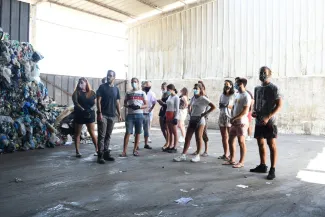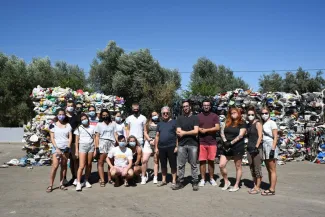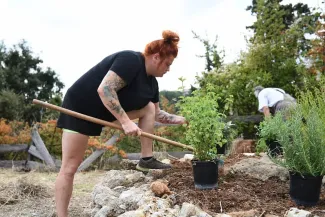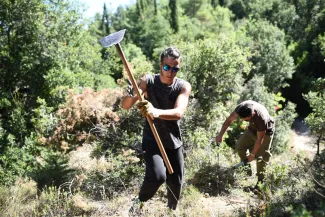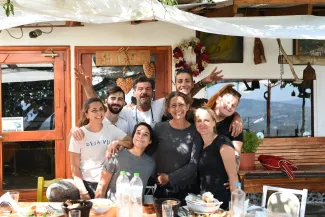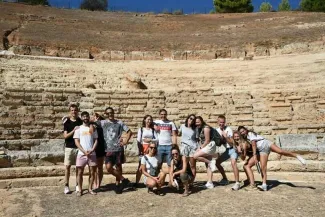The European Environmental Volunteering Program “Act Green” was the first team activity developed under the program European Solidarity Corps, managed by FILOXENIA -Intercultural-Environmental Organization, with support from the Greek National Agency, the Institute of Youth and Lifelong Learning. The purpose of the program was to foster the actions and practical activities, debates and reflection, on issues related to democracy, the European citizenship, common European values, history and culture, with the aim of bringing Europe closer to its citizens, while preserving a healthy and safe natural environment.
The project enjoyed the participation of volunteers from 5 different European countries, aged between 18 and 30. During their stay, the participants visited the Corinth Recycling Center for Recyclable Materials (K.PSAY) in Bolati, Corinth, where they learned about the factory operations, the step-by-step recycling process and the legal framework of recycling in Greece. The young people exchanged views and compared the recycling and waste management situation in their countries, as well as in other places in Europe.
Project activities:
The "Act Green" volunteering activities were designed according to the general purpose of the program and included:
-
creating, cleaning and restoring several environmental footpaths (cutting grass, bushes and fixing the paths);
-
planting trees under the guidance of a specialist;
-
designing and constructing road signs for the footpaths;
-
building wooden outdoor equipment for the footpath (banks, stairs, etc.)
-
constructing an outdoor mosaic object;
-
cleaning the nearby beaches;
-
reusing and recycling the leftover material from the wooden constructions;
-
realising a video documentation of the project activities;
-
promoting and proposing ideas for the sustainability of local agrotourism & ecotourism.
Other activities in the project involved discovering and interacting with the local population of Kryoneri, an ancient Greek village, participating in sustainability workshops and learning how to integrate old materials, in particular wood, in new constructions. Also, the volunteers had to do a presentation about their sending organisations and organise an intercultural event to present their countries (food, dance, music, etc.). At the end of the program, all participants took part in evaluation and feedback sessions, individual and in groups.
